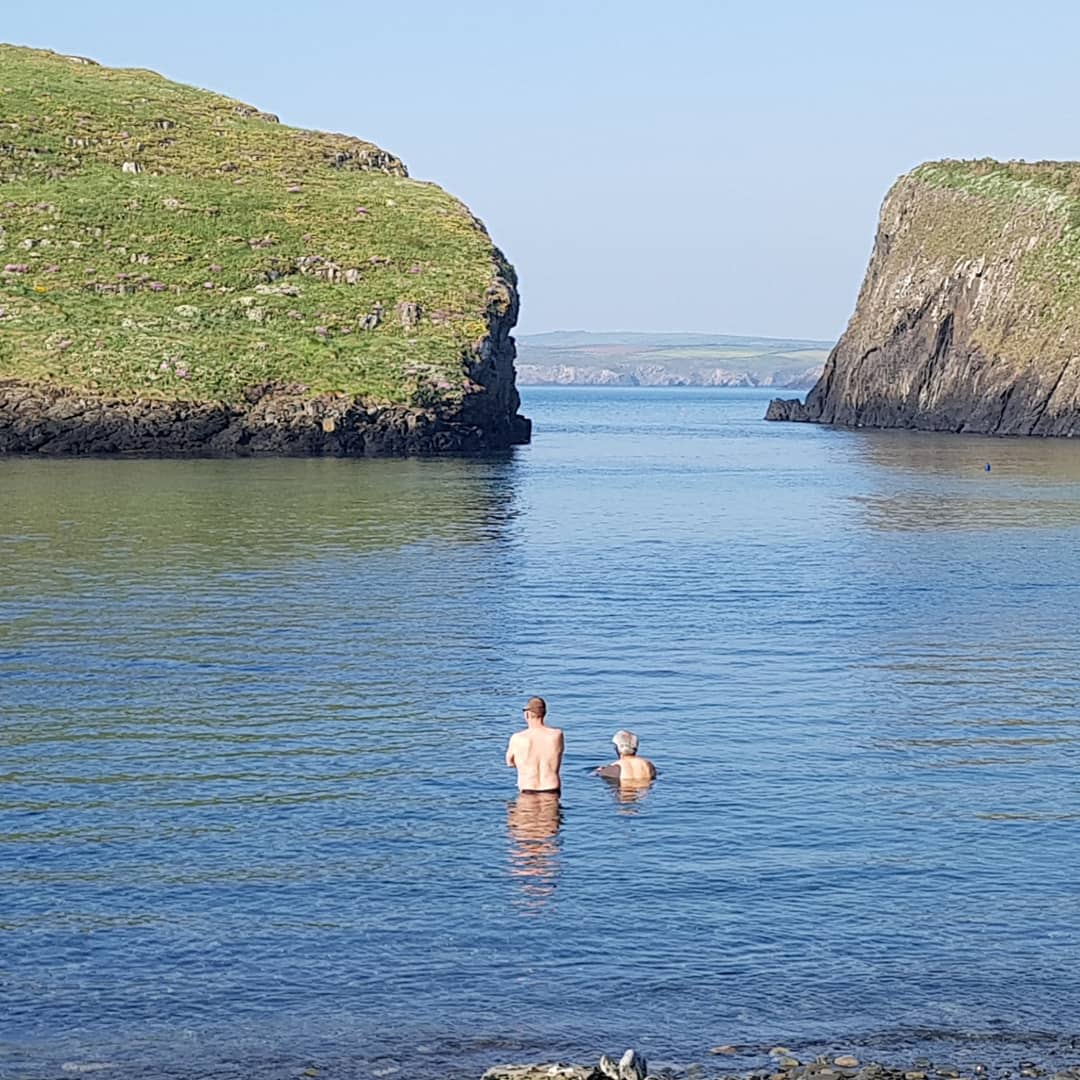The answer to questions we often get asked, and a helpful conversation with someone we’ve helped, about why.
We can help anybody in the water, with all our years of experience, but some people need our help more than others and some people have goals that make it less easy for us.
Sometimes we find ourselves putting people off coming because of the questions they initially ask.
Questions we like best are ones like these:
- Can you help me feel more confident in water?
- Can you help me swim without getting tired or straining myself?
- Can you help me to enjoy/ trust/ get more from being in water/ be more confident in the sea on holiday?
Occasionally people are aiming too high because they have a specific goal. This can mean putting the cart before the horse.
It’s difficult to be enthusiastic about helping people towards a pursuit that’s likely to cause strain and frustration. For example, when a nervous swimmer has signed up for a triathlon.
Learning to swim should never be stressful but, if you combine it with the goal of needing to do so many lengths, realistically front crawl, within a certain amount of time, it probably will be.
When people say they would like to swim ‘properly’, they are often thinking of being able to do a graceful and efficient front crawl.
Our definition of ‘properly’ would be about a person’s relationship with water. It would mean feeling safe, able to make comfortable transitions from swimming underwater to a place to breathe, not feeling panicky in deep water. The cornerstones are enjoying the support of the water as a constant and loving the experience of being underwater. But ‘properly’ is a dodgy word because it suggests the need to get something right, and that puts all of us on the wrong track.
When people say they want to do open water swimming, do they mean floating about looking at the fish on holiday or doing 1 mile pier to pier swims in a wetsuit with loads of other swimmers?
Here’s a contact request I wonder how to respond to:
“I’m interested in front crawl improvement for open water swimming.”
“I’m 56, planning on doing my first triathlon in July, and really need to learn to swim properly. What’s holding me back is my breathing. I panic and take on water. I’m quite fit, I don’t know if it’s the swimming that’s tiring me out, or the breathing, or a combination of both, but I don’t seem to be able to swim more than 4 lengths. I’d like you to teach me to swim properly please.” (voicemail)
Response from Ian
‘I’m sure we can help you but we find that a goal like doing a triathlon can get in the way. It kind of forces us to work on the strokes. If you wanted to learn to swim so you could enjoy the water on holiday, that would be easier for us to work with. The triathlon in July would worry me a bit.
Personally I feel that any kind of competitive goal in water takes the fun out of it. That’s what I think in my mid 50s. I’d be trying to encourage you to see the water as a source of support, not an obstacle to overcome, but in a triathlon it does become a bit of an obstacle.’
“I met a triathlete who was telling me about a panic attack he had, during an event, in the deep, dark water of the swimming lake. Immediately thought of how helpful you (and your book/blog) were for me (as in I can/could swim again) and told him all about SWS…I’m assuming your skills can help someone with ‘dark open water swim fears.”
Response from Ian:
‘The older I get the more I see the water as a source of support rather than a place for striving. So I really believe in floating about, allowing it to help us to release and expand so our breathing opens up. And anyone can do that. People spend too much time in water pushing towards some goal and not enough time submitting to the support of the water. I’d be trying to encourage your friend to change his approach. Focus more on enjoying the water and less on competing in events. The fear of deep water is likely to be intensified by the stress of competition.’
…
The person who sent me the question replied with a useful response.
Here is an extract…
Training for a triathlon, swimming was ok but then I couldn’t do it, and was struggling. But ‘swimming without stress’ made sense. I’ll leave all the ‘drills’ and ‘sets’ to the elites and glide and breathe easy.
… A sea swim today in a very choppy sea was hard work so I still have a way to go but ‘swimming without stress’ is the most help I’ve found.’


